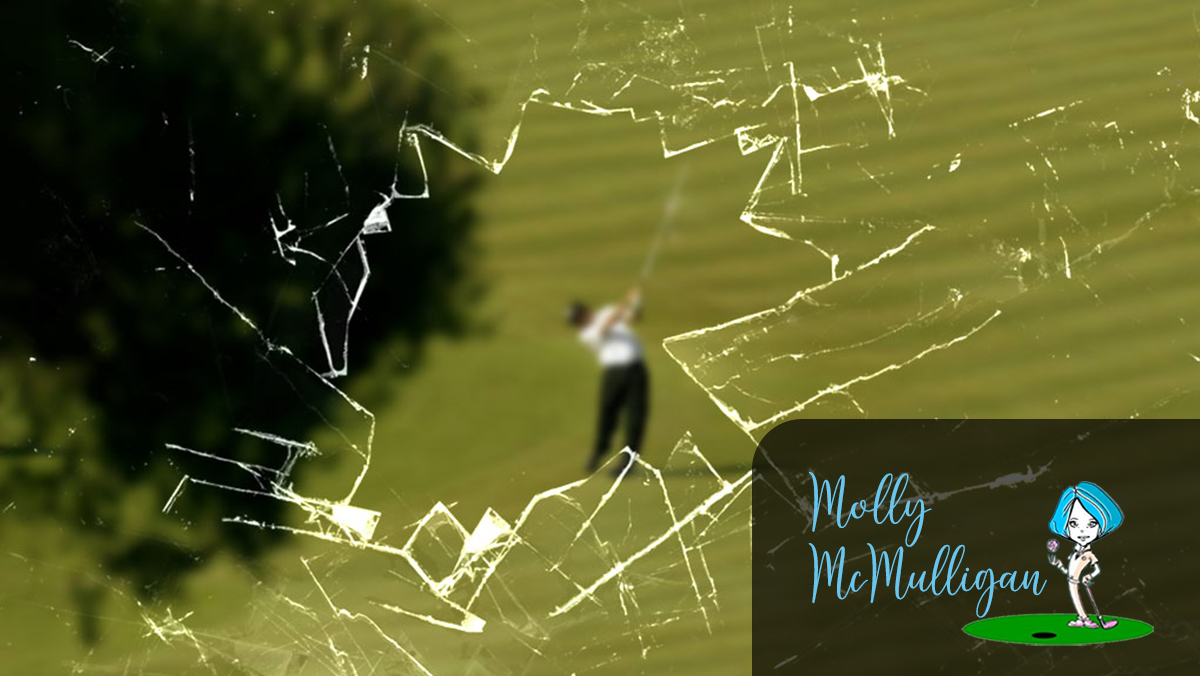Suppose I hit a house?
Dear Molly: Houses on a favorite Colorado course are too close to the fairway for my game. What’s the expectation if I hit one of them?
It’s something of an irony that we routinely urge our golf ball to do precisely that. “Hit a house!” we exclaim, envisioning a lovely mansion sprouting up on the green to stop our overenthusiastically stroked downhill putt.
We do not want to hit a real house with a real golf shot any more than we want our own house pummeled with golf-ball-size hail. But, stuff happens. I posed your question in a conversation with CGA Executive Committee member and legal counsel Ed Timmins, who specializes in complex litigation and transactions.
Ed, a member at Denver Country Club, surely has never hit a house, not even the one that sits temptingly inside the dogleg on the par-5 13th hole. “I don’t know what that would feel like,” he says, maybe serious or maybe not.
Seriously, though, he says the legal question of responsibility for a golf ball shattering the window of a house or car along a fairway “is not simple, not at all.”
Among the complications, he says: “There is a legal argument that the homeowners assumed a risk of errant golf balls when they bought a house on a golf hole. If I was defending the golfer, that would be my defense: assumption of risk. But most courses also have signage that says the golfer is responsible for damage to neighboring houses. That could be in the real property documents, the plats or covenants for the property, and it could become a more complex legal question depending on the documents that might be applicable.”
Most golf course homeowners have property damage insurance that would pay for golf ball damage, but in Colorado the deductibles on those keep increasing so that it’s hardly worth the trouble of filing a claim. Most golfers have some personal liability insurance in their homeowner policy, but, again, there’s that deductible.
So let’s think for a moment about a few of the core values taught to kids learning golf in the First Tee program: honesty… integrity… courtesy… responsibility. If you slice a shot off the tee and hear a crack, and these are your values, do you slink away quickly, not looking at the house you hit?
“Most times, there is no damage. It hits off a deck or something,” Ed Timmins says. “But my view is if there is some damage done, if a window is broken or you see other visible damage, the golfer should leave a note. You should take responsibility.”
If you’re not sure you broke a window, you could also leave your contact info with the golf shop. Once you connect with the homeowner, you could trade insurance information and let the matter play out that way. Or you could ask the homeowner how you can make things right.
In the better-case scenario, there’s no damage but residents are out in the yard or on the deck and you apologize for the disruption. You might even get your golf ball back!
Or, maybe you end up with a new client, like Justin Knoll did when he hit a house at Blackbear that had never been hit before. Knoll broke a window and immediately apologized. He and his wife, Piper, are real estate agents. “We got the window fixed the next day,” Piper says. “We sent him some goody baskets, and we sort of became friends. When they decide to sell, they’re going to use us. Justin’s new marketing thing is, ‘I’ll just go break windows and tell people they have to move.’ ”
She laughed. When everyone ends up laughing, that is the best-case scenario.
Do you have a question about golf etiquette, golf relationships or the culture of golf in Colorado? Email it to Molly McMulligan, the CGA’s on-the-course advisor on how to have more fun on the golf course. Her creator, researcher and writer is golf journalist and CGA member Susan Fornoff.
MORE FROM MOLLY
Can I tee off when a golfer comes into my fairway?










